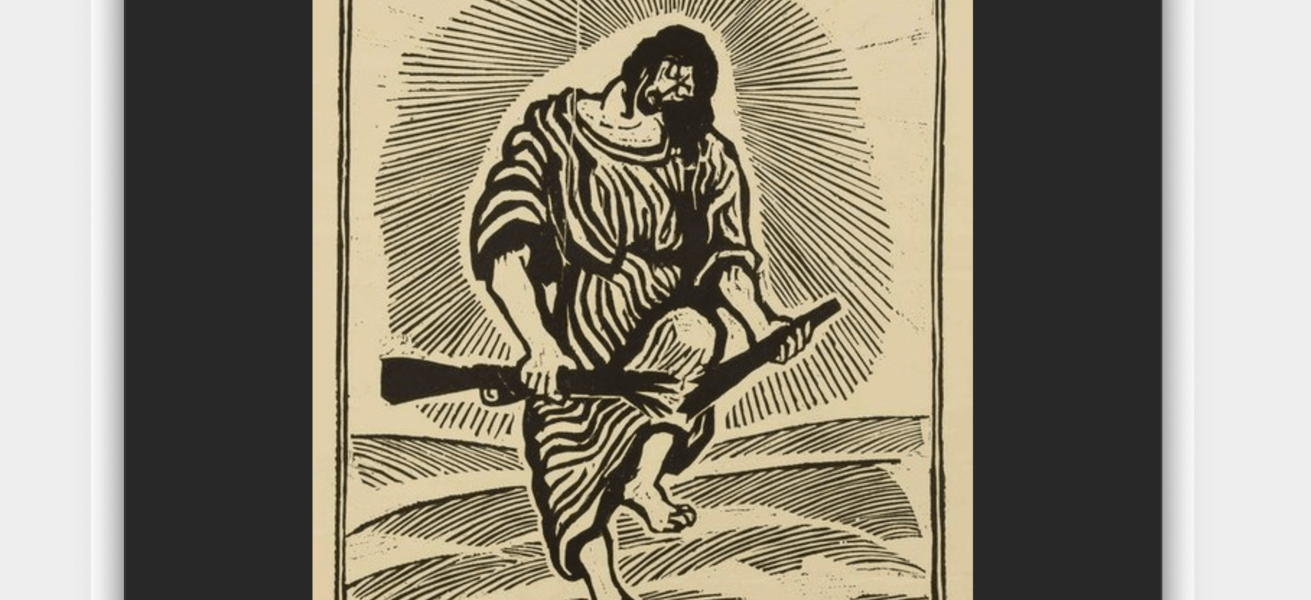Two Sundays ago, I allowed myself to be caught up in a rather lengthy discussion with a certain fellow: friendly, loud, boisterous, and firm in his convictions. The discussion concerned believer's baptism vs. infant baptism, salvation, and a certain view of Church history which, I learned, is put forth in an Anabaptist classic, The Martyr's Mirror (1660). This view of history a Wikipedia article refers to as "church perpetuity" or apostolic succession. The notion is that the Anabaptists of the 16th century and since are proper heirs of the "true Church" (and that the Church of Rome never was, because it stopped being the Church as soon as it was coopted by the Empire). At least one version of the story (as I had heard it before, interestingly enough, from our evangelical, Greek tour guide four years ago now) attempts to trace the lineage of (name of church body here) to a church or churches established by the Apostle Paul (a group that called themselves "Paulists") in the first century which refused to recognize the legitimacy of the Roman Church as soon as it became the state religion under Theodosius (see also here) who (as I recall being told by the tour guide) in effect mandated that every citizen (infants and adults) be baptized, and threatened them with death if they did not comply--thus making a personal confession of faith meaningless.
The purpose of this narrative has always seemed to me to be to remove the Roman Catholic Church from the pages of Church history (perhaps in order to excuse oneself from a few centuries worth of historical study, or perhaps to avoid identifying oneself with certain historical atrocities such as the Crusades and Inquisition)--surely, I always think, this must be a cheat. I mean every Christian in the West--for better or for worse--is de facto an heir of the history of the Roman Catholic Church from its inception to the Reformation(s), as surely as every thinking person in the West is de facto an heir of Enlightenment Philosophy. Further, I have a tendency to react in a strongly negative way to attempts to identify one body or another as "the true Church" (although I guess I'm enough of an exclusivist to deny that anyone who explicitly denies the divinity and Lordship of Christ is not a member of the Church, true or otherwise). One of the things that attracted me to the Anabaptists (via my wife, via a certain retired professor of mathematics who teaches literature seminars) is their emphasis on epistemic humility (which I would like to think extends to their theological commitments, but it seems not to in a number of cases when the topic of infant baptism comes up), and the fact that their history is rather uniquely free of killing other people because in the name of protecting orthodoxy (well, to be truthful, some Anabaptists seem not to have been pacifists).
However, as much as I continue to be personally attracted to certain elements of tradition, thought, and practice which I think of as Anglo-Catholic, I have to admit that since becoming part of an Anabaptist community and since hearing some people around me talk about "the Constantinian Shift" I have become more open to this kind of story. What attracts me I think is the strong anti-imperialism and counter-culturalism. (Everyone's got an -ism, a certain former correspondent of mine would say!) Since taking Apocalyptic Literature as an undergraduate Biblical Literature major I have become increasingly conscious of the political (or anti-political, perhaps) commitments that seem to come along with confessing Jesus as Lord. (Although, as I remember concluding at the end of that course, Daniel and his friends held positions of political power, and they were counted among the good guys.) It makes sense to me to suggest that when Christians took up arms to protect the state (that is, to protect some sinful human beings against others) and swore oaths of political allegience to political and military authorities, something went seriously wrong. (This is probably one of the two or three reasons that I consider myself a pacifist.)
Still, I have reservations about identifying with the Anabaptist tradition. I am still more comfortable with Reformed/Wesleyan/Anglo-Catholic views on the sacraments, for example. And my Catholic sympathies (probably in part the result of my upbringing, in a home which prided itself I think on being good friends with Catholics in a small midwestern town) are going to die hard, if at all.
As part of my personal quest to reconsider my theological views on things (in general), and to decide what it means to be Anabaptist (so I can decide whether or not to say I am one and mean it), I want to take up my brother's challenge (the friendly, loud, boisterous, and convicted one) to look at the introduction in the Martyr's Mirror with its account of Anabaptism and "church perpituity".
So I think I will be doing this in a series of blog posts. The text, if any is interested, is here.
Until then.
------
"He Himself is our Peace." (Eph 2)
Thursday, March 13, 2008
Martyr's Mirror 1: Prologue 1
Subscribe to:
Post Comments (Atom)





No comments:
Post a Comment